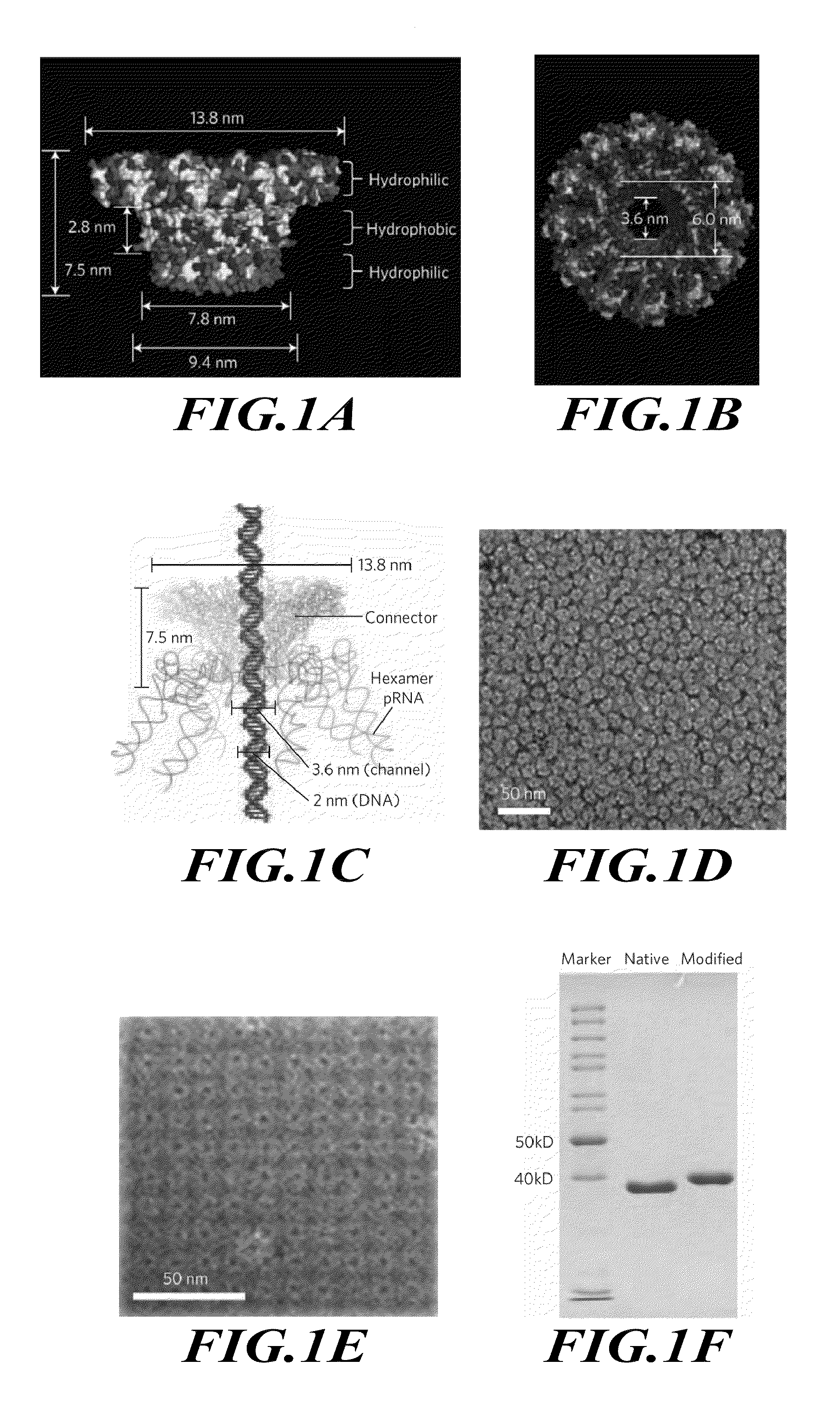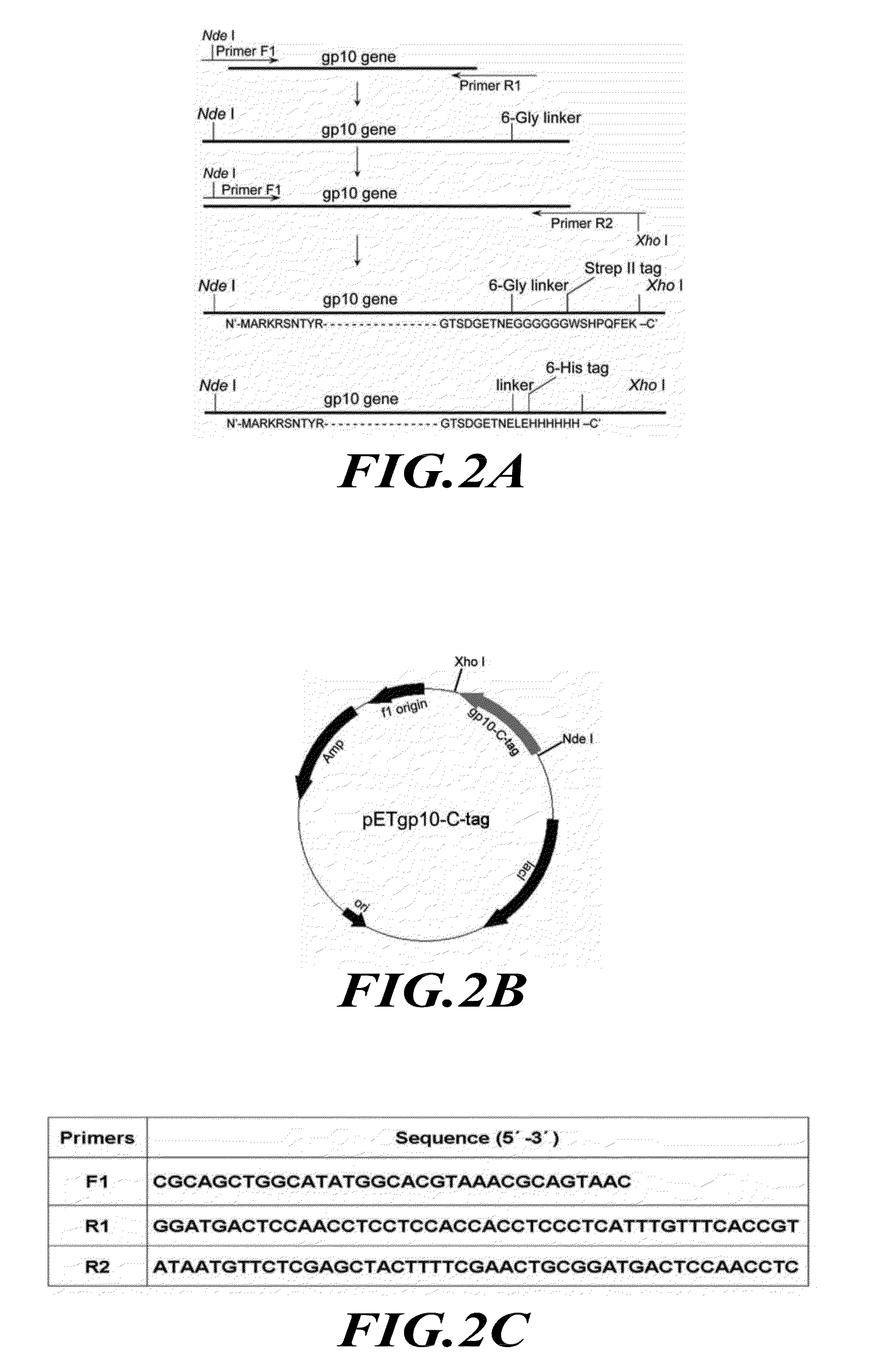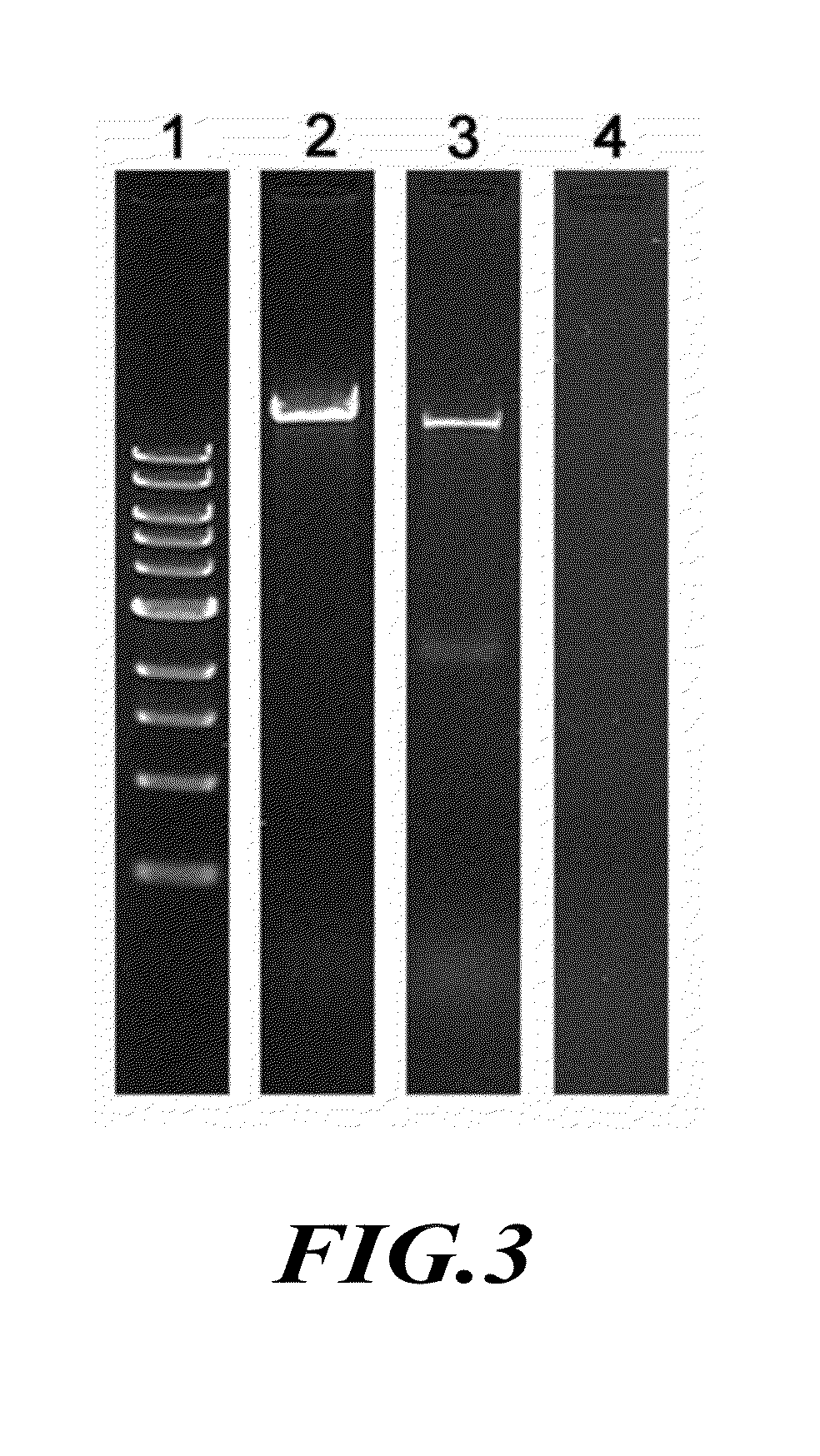Membrane-integrated viral DNA-packaging motor protein connector biosensor for DNA sequencing and other uses
a technology of motor protein and membrane-integrated viral dna, which is applied in the field of biosensors, can solve the problems of poor candidates for widespread use such as biomedical applications, lack of versatility in regard to ability, and low system robustness, and achieves high throughput
- Summary
- Abstract
- Description
- Claims
- Application Information
AI Technical Summary
Benefits of technology
Problems solved by technology
Method used
Image
Examples
example 1
Assembly of Conductive Channel-Containing Membrane Using Isolated Viral DNA-Packaging Motor Connector Protein
[0181]This example describes redesign of the dsDNA phage phi29 DNA-packaging motor connector protein to include distinct regions of hydrophilicity.
[0182]Materials.
[0183]The phospholipids 1,2-diphytanoyl-sn glycerol-3-phosphocholine (DPhPC) and 1,2-Dioleoyl-sn-Glycero-3-Phosphocholine (DOPC) were purchased from Avanti Polar Lipids (Alabaster, Ala.). N-(7-nitrobenz-2-oxa-1,3-diazol-4-yl)-1,2-dihexadecanoyl-sn-glycero-3-phosphoethanolamine, triethylammonium salt (NBD-PE) were purchased from Invitrogen. n-Decane and chloroform were purchased from Fisher and TEDIA, respectively.
[0184]Reengineering of Phi29 Connector.
[0185]The construction of the plasmid for the expression of the connector protein and the assembly of the dodecameric connector have been reported previously (Guo et al., J. Nanosci. Nanotechnol. 5, 856-863 (2005)). The subsequent terminal modifications of the connecto...
example 2
Incorporation of Isolated Viral DNA-Packaging Motor Connector Protein into Liposomes to Form Conductive Channel-Containing Membrane
[0205]This example describes insertion into liposomes and a lipid bilayer of the modified viral DNA-packaging motor connector protein that was designed and prepared as described above, including in Example 1, and characterization of the resulting conductive channel. The presence of the channel across the lipid bilayer that was formed by the connector protein was confirmed by single channel conductance measurements and translocation of dsDNA.
[0206]Separation and Detection of Liposome / Connector Complex by Sucrose Gradient Sedimentation.
[0207]A 5-20% linear sucrose gradient sedimentation in TMS (50 mM Tris, pH 8.0, 100 mM NaCl, 10 mM MgCl2) (Guo et al., 1986) was performed to separate the liposome / connector complexes from the free connector. A 0.1 mL sample was loaded at the top of the 5-mL centrifugation tube. After spinning in a Beckman L-80 ultracentrifu...
example 3
Re-Engineering of dsDNA Viral DNA-Packaging Motor Protein Connectors for Nucleic Acid Translocation
[0234]Double-stranded DNA viral DNA-packaging motor protein connectors' pore size and conductance are modulated through engineering to vary aperture dimensions, surface hydropathy profile, freedom of movement of flexibility domain and / or affinity / alignment domain interaction with membrane bilayers and nature of the particular affinity binding site, all as described above. The electrophysiological, chemical and mechanical properties of the modified connector as incorporated into a membrane layer to form a conductive channel are characterized under different conditions, such as ionic strength, pH, and temperature. The orientation of the connector channel for DNA directional transmembrane transportation is determined as described herein, and condensed dsDNA loading into giant liposomes is performed under applied transmembrane electrical potentials. Unidirectional transmembrane translocati...
PUM
| Property | Measurement | Unit |
|---|---|---|
| Electric potential / voltage | aaaaa | aaaaa |
| Electric potential / voltage | aaaaa | aaaaa |
| Electric potential / voltage | aaaaa | aaaaa |
Abstract
Description
Claims
Application Information
 Login to View More
Login to View More - R&D
- Intellectual Property
- Life Sciences
- Materials
- Tech Scout
- Unparalleled Data Quality
- Higher Quality Content
- 60% Fewer Hallucinations
Browse by: Latest US Patents, China's latest patents, Technical Efficacy Thesaurus, Application Domain, Technology Topic, Popular Technical Reports.
© 2025 PatSnap. All rights reserved.Legal|Privacy policy|Modern Slavery Act Transparency Statement|Sitemap|About US| Contact US: help@patsnap.com



